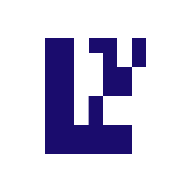Lagrange's positioning is 'modular state verification network', which sounds far from the user.
However, the value logic of $LA is actually very clear and even 'irreplaceable'.
It is not just for governance; it is the driving force behind the entire on-chain verification mechanism.

1. First, let's look at the core uses: $LA mainly has three types of functions.
1️⃣ Used for staking, ensuring the honesty of state proof nodes.
Validators on the Lagrange network need to stake $LA to run nodes and issue state proofs.
This is similar to EigenLayer's AVS model; without staking, nodes cannot run, which directly controls network security.
2️⃣ Used as an incentive, rewarding Proof providers and inter-chain callers.
A provider issues a proof; it's not for free, it requires a reward.
The caller may also need to pay gas or proof fees to use the state information of a certain chain.
All these economic interactions are based on LA.
3️⃣ As a governance token, it determines key directions such as parameters, incentive mechanisms, and the list of accessed chains.
Especially later, if multiple ecosystems use Lagrange as a proof bridge, the governance power of LA will be very critical.

2. So what problem does it solve?
What is most lacking in the ZK direction is actually not 'who can do SNARK', but:
How to generate credible 'behavior proofs' between different chains at extremely low cost and extremely high efficiency.
This is not just a technical issue, but also an incentive issue.
Who will provide computing resources? ❓ Who will maintain the nodes? ❓ Who will ensure that behavior is not fraudulent? ❓
Without token-driven incentives, no one would do this.
Therefore, LA is not just an embellishment, but an essential part of the mechanism design.
3. Is there a risk of random issuance?
From the currently published data, the total supply of LA is 100 million, with a low initial circulation ratio.
Token release is based on node incentives + ecosystem development + airdrop tasks, and there is no behavior of 'sudden release'.
You will find that Lagrange is also a 'slow-burning type': gradually increasing volume through long-term ecological cooperation, not relying on sudden hype.
📌 To summarize:
$LA = the oil of the verification network + security guarantee for the network + the key to ecological connectivity.
It is not a 'governance token that you can ignore'.
Instead, if you want to use Lagrange as a verification bridge, you must hold or invoke the system token.



